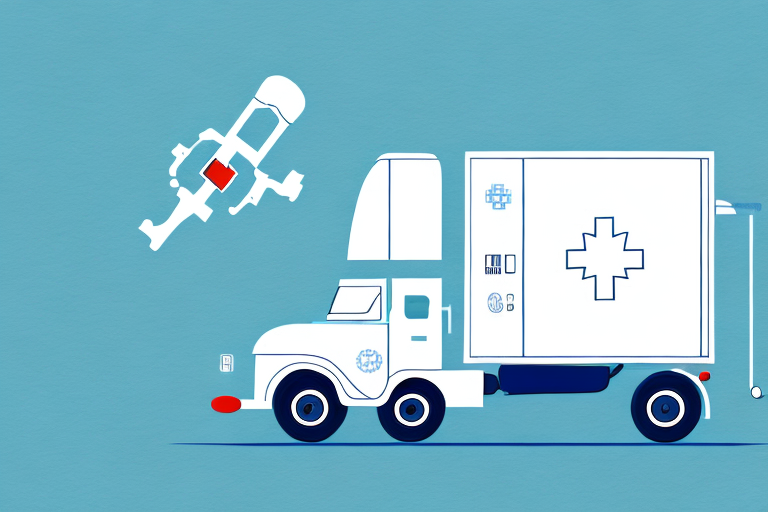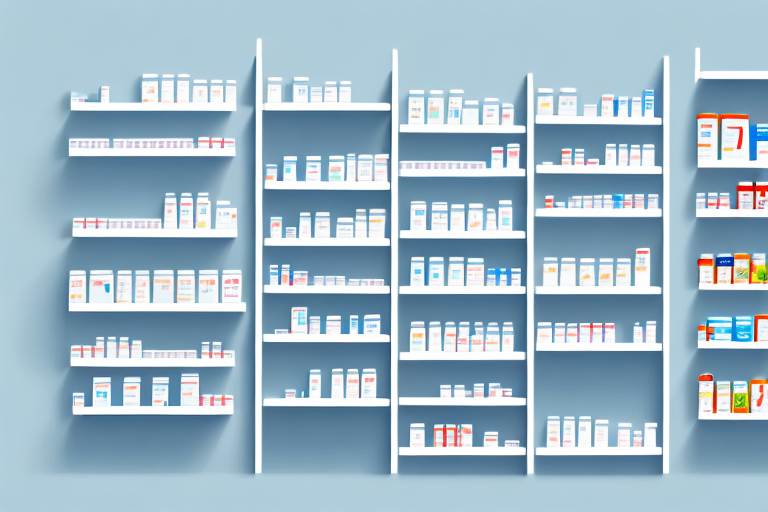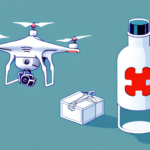Medicines play a crucial role in ensuring the wellbeing of patients. They are prescribed by healthcare professionals to treat a variety of illnesses, chronic conditions, and diseases. The timely delivery of medicine is essential because many medications need to be taken at specific times to be most effective. For some patients, delays in receiving essential medications can be a matter of life and death. With the growing population of patients and advancements in technology, ensuring the safe and timely delivery of medicines has become increasingly important. According to a World Health Organization report, medication adherence and timely delivery significantly impact patient outcomes and overall public health.
The Critical Importance of Safe and Timely Medicine Delivery
The safe and timely delivery of medicines is fundamental to ensuring that patients receive the necessary treatment to recover from their illnesses. It is vital to deliver medicines in the correct dosage, through the proper route, and at the right frequency to maximize effectiveness and minimize side effects. Proper storage, handling, and transportation are also crucial to maintaining the efficacy of medications.
Patients rely on medicine delivery services to receive their treatments promptly, and any delays or errors can have severe consequences. For instance, certain medications require refrigeration or specific storage conditions to remain effective. Without proper delivery, these medications may lose their potency, leading to potential harm to the patient.
Challenges in Delivering Medicines Safely and On Time
Transportation and Logistical Issues
Transportation plays a pivotal role in the delivery of medicines. Factors such as weather conditions, traffic congestion, and logistical errors can lead to delays, adversely affecting patient health.
Storage and Handling
Proper storage and handling of medicines are critical to maintaining their efficacy. Mishandling can cause contamination or degradation, rendering medications ineffective or harmful.
Rural and Remote Areas
Delivering medicines to rural communities presents unique challenges, including limited healthcare infrastructure and scarce pharmacies. This often results in longer delivery times and reduced access to essential medications.
Impact of COVID-19
The COVID-19 pandemic has exacerbated existing challenges in medicine delivery, leading to increased demand for home delivery services and disruptions in global supply chains. A study by PubMed highlights these impacts on healthcare delivery systems.
Technological Innovations Revolutionizing Medicine Delivery
Tracking and Monitoring Systems
Advanced tracking systems enable real-time monitoring of medication deliveries, ensuring that medicines reach patients promptly and remain secure during transit. These systems use GPS and IoT technologies to provide accurate delivery status updates.
Artificial Intelligence (AI)
AI is being utilized to optimize delivery routes, predict delays, and manage inventory, enhancing the efficiency and accuracy of medicine delivery services. AI-driven analytics help healthcare providers make informed decisions to reduce delivery times.
Blockchain Technology
Blockchain offers a secure and transparent way to track the supply chain of medicines, preventing counterfeit drugs and ensuring authenticity. This technology creates an immutable record of transactions between suppliers, transporters, and recipients.
Emerging Delivery Methods
Innovations such as drones and autonomous vehicles are being tested to facilitate faster and more cost-effective medicine deliveries, especially in hard-to-reach areas.
Strategies and Best Practices for Safe and Timely Medicine Delivery
Reliable Transport Services
Choosing a dependable medicine delivery service provider is essential. A reliable provider ensures the safe handling, storage, and transportation of medicines, adhering to all regulatory standards.
Proper Storage and Handling
Maintaining the correct storage conditions during transport is crucial. Medications requiring refrigeration or specific environmental conditions must be handled with care to preserve their effectiveness.
Utilizing Technology
Employing technologies like AI and blockchain enhances tracking, reduces errors, and ensures timely deliveries. These technologies provide transparency and improve overall delivery processes.
Training and Education
Providing comprehensive training to healthcare providers, delivery personnel, and patients ensures everyone involved understands the importance of safe and timely medication delivery. This reduces errors and improves patient outcomes.
Best Packaging Practices
Proper packaging is vital to protect medicines from environmental factors and physical damage during transit. Specialized packaging can maintain drug stability and safety.
Special Considerations in Medicine Delivery
Delivery of Specialty Medicines
Specialty medicines, used to treat complex conditions like cancer and autoimmune disorders, require specialized handling and delivery practices. Ensuring their safe and timely delivery is crucial for treatment effectiveness.
Overcoming Rural Delivery Barriers
Implementing solutions such as telemedicine, mobile clinics, and community partnerships can help overcome the logistical challenges of delivering medicines to rural and remote areas.
The Role of Pharmacists
Pharmacists play a key role in ensuring medications are safely and correctly delivered. They provide medication counseling, verify prescriptions, and collaborate with delivery services to maintain medication integrity.
Ethical Considerations
Ensuring patient privacy and preventing the misuse of medications, especially controlled substances, are critical ethical concerns in medicine delivery. Adhering to ethical guidelines promotes patient trust and safety.
Choosing a Reliable Medicine Delivery Service Provider
Reputation and Experience
Select a provider with a proven track record and positive reputation in the industry. Experienced providers are more likely to handle medicines safely and deliver them on time.
Regulatory Compliance
Ensure the provider complies with all relevant regulations and standards, including those for handling controlled substances and hazardous medical items.
Technology Integration
A provider that leverages the latest technologies for tracking and managing deliveries can offer more reliable and efficient service.
Customer Service
Excellent customer service ensures that any issues or concerns are promptly addressed, enhancing the overall delivery experience for patients.
Future Trends and Predictions in Medicine Delivery
Integration of Advanced Technologies
The future of medicine delivery will likely see greater incorporation of technologies such as drones, autonomous vehicles, and enhanced blockchain systems to improve delivery speed and security.
Personalized Medicine Delivery
Advancements in personalized medicine will require tailored delivery solutions to meet the specific needs of individual patients, enhancing treatment efficacy and patient satisfaction.
Enhanced Supply Chain Transparency
Improved transparency in the supply chain through blockchain and other technologies will help prevent counterfeit drugs and ensure the integrity of medication deliveries.
Sustainability in Delivery Practices
As environmental concerns grow, there will be a push towards more sustainable delivery practices, including the use of eco-friendly packaging and green transportation methods.
Conclusion
The safe and timely delivery of medicines is paramount in ensuring optimal patient care and health outcomes. By addressing challenges, leveraging technological innovations, and implementing best practices, the healthcare industry can enhance medicine delivery systems. Collaboration among healthcare providers, delivery services, and policymakers is essential to overcome obstacles and adapt to future trends, ensuring that patients receive the treatments they need efficiently and safely.






















